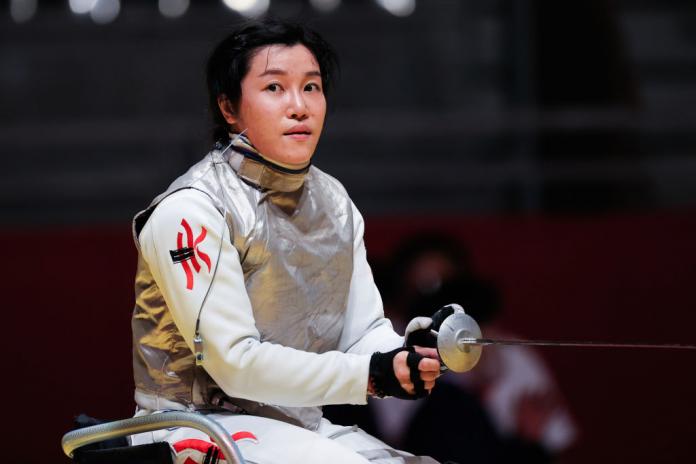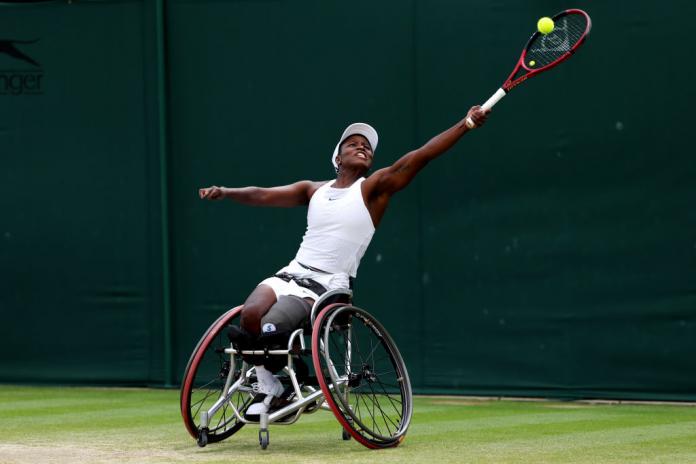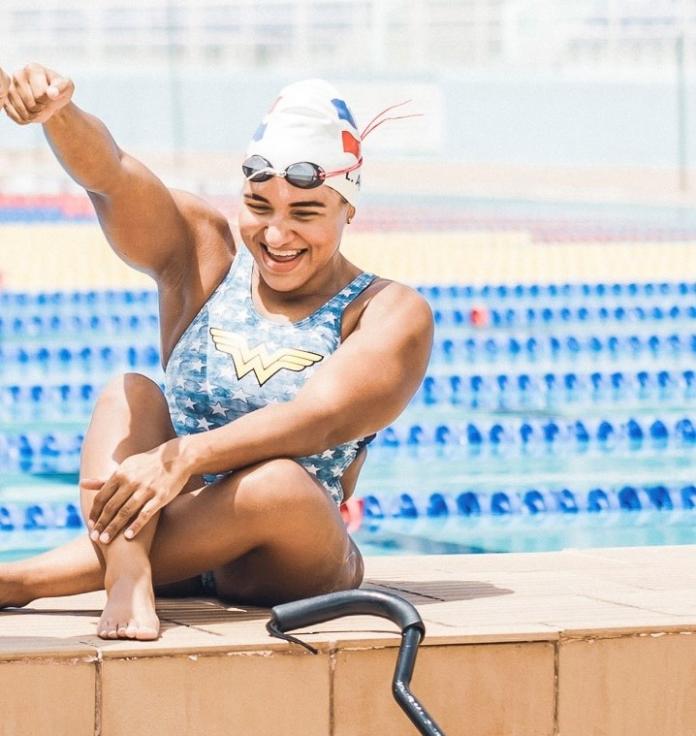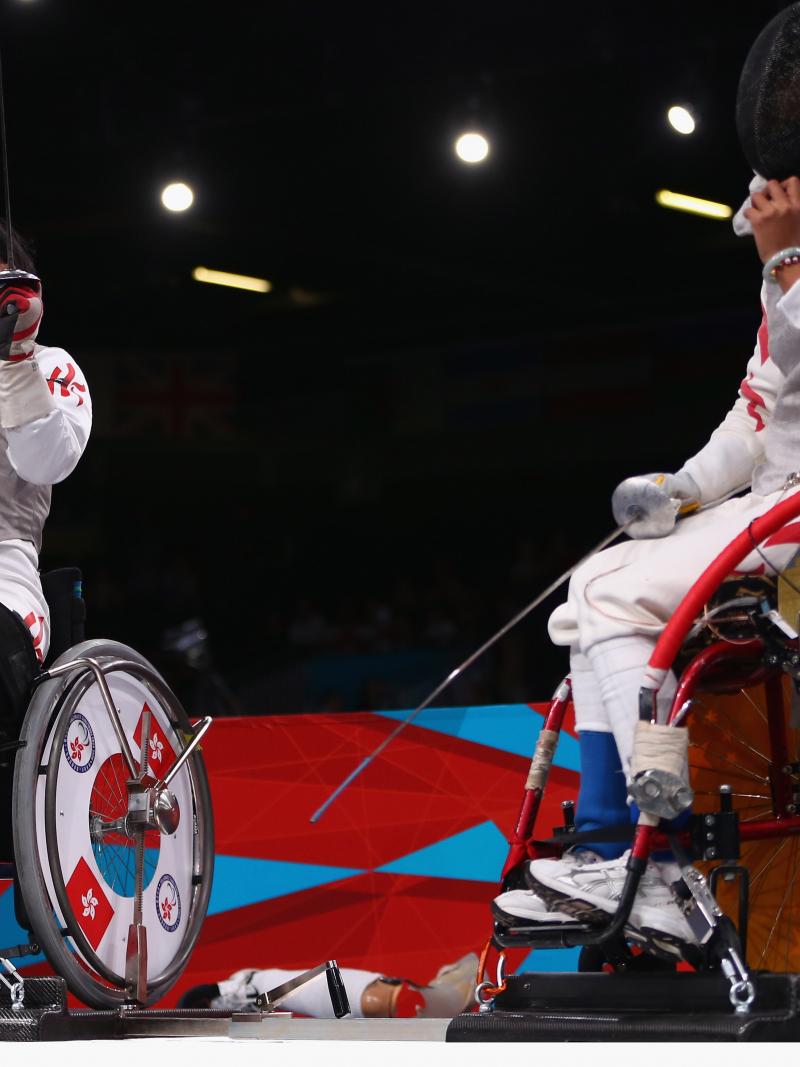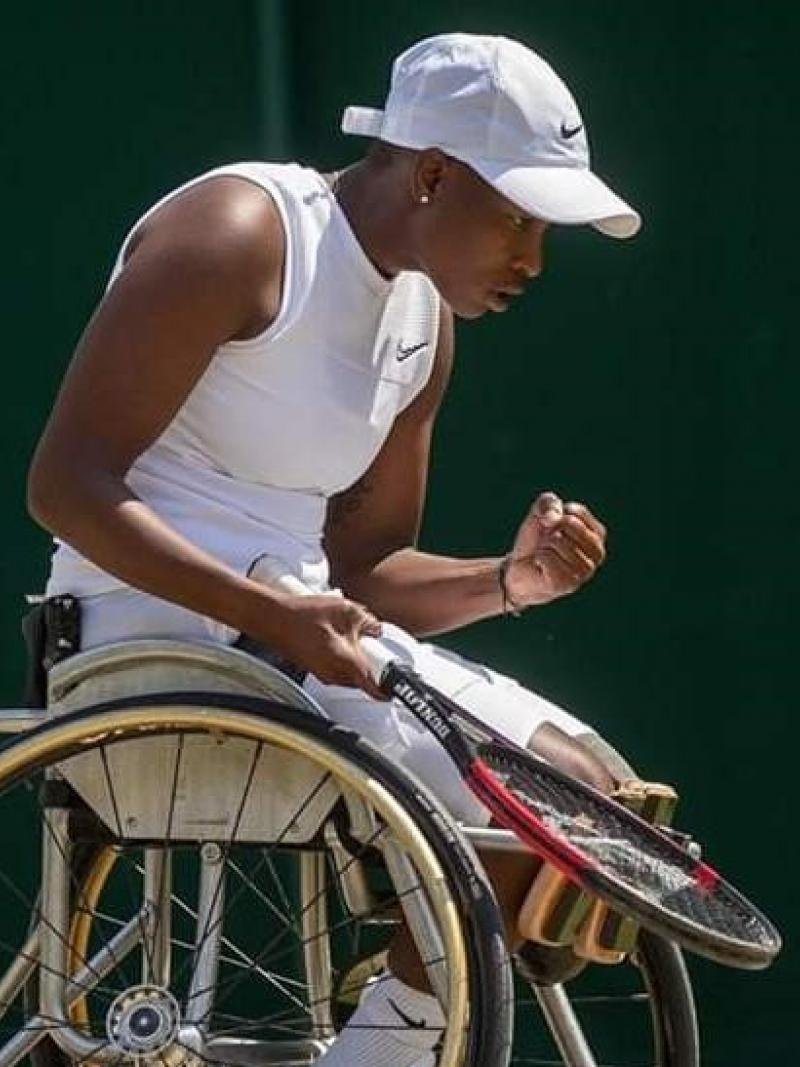International Women's Day 2024: Paralympians have their say
From visibility to equality and breaking down stereotypes - four female Paralympians open up on the aims of International Women's Day and what it means to be a woman in Para sport 08 Mar 2024Female athletes have brought the Paralympic Movement to new heights. To celebrate International Women’s Day on 8 March, we asked four female Paralympians - Chui Yee Yu, Alejandra Aybar, Kgothatso Montjane and Stefanie Reid - about their journey in sport and what this day means to them.
What do women want on International Women's Day?
Chui Yee Yu (Hong Kong, China, wheelchair fencing): Today is International Women’s Day and I think today is very important because it is a special day for us to celebrate and recognise the contributions of women, especially in Para sport.
Kgothatso Montjane (South Africa, wheelchair tennis): What I think women want is the visibility because we are as capable as men. We just want to be showed off, we just want to be talked about for who we are because I feel like we have as much ability as men. We just want that visibility to be able to be recognised.
Alejandra Aybar (Dominican Republic, Para swimming): On International Women’s Day, I think women need more equality in everything: sports, work and life.
Stefanie Reid (Great Britain, Para athletics): What I think women want for this day is action. I’m not interested in a social media post or a press release. What I want to know from a company is how many women are in management. What are you paying them? What is your policy when it comes to maternity or flexible leave? What I want is real change and real equality, and real in the sense that I can see it on a plain sheet of paper and numbers.
What does it mean for you to be part of a legacy for women in sport?
Chui Yee Yu: Being a part of the legacy of women in sport is definitely an honour. It also means that I have to work hard in my own sport career and also (think about) how can I use my experience to encourage young girls to participate in Para sport, or finding their own goal and try to work for it.
Kgothatso Montjane: It really means a lot. I’m honoured because it will take stories like mine to really inspire the next generation. I feel honoured to really be part of the legacy.
Alejandra Aybar: Being a part of the legacy in my country makes me very grateful. A few years ago, there weren't any Para athletes that people knew, but they do now. That makes me feel grateful because I know there are many people with disabilities who don't feel alone anymore. They know there are other people with disabilities, who have done their best with what they have.
Stefanie Reid: I love my life and sport is a huge reason why. It’s given me experiences, opportunities I can never even dreamt of, and I dreamed big as a kid. And I know that those opportunities were there for me because of the people who were investing in sport and women long before I started. And I want to be part of that cycle.
Looking back at your career, who were your role models in sport?
Chui Yee Yu: When I started doing wheelchair fencing when I was 16 years old, my role model was Serena Williams because she is a legendary tennis player. She won lots of Grand Slams, and she is also an Olympic champion. She is not just winning lots of titles. She also developed her career in different perspectives.
Kgothatso Montjane: Looking back at my career, people have been there. Obviously, my parents, the federation that introduced me to the sport is the one mostly that pushed me to really be where I am. Obviously friends also have been my biggest supporters. They also really pushed me. Even now at the moment, my entire team, my agency – they just make sure that I’m pushing to achieve my dreams.
Alejandra Aybar: When I started my sporting career, I had no idea that other women also practiced sport. Now, it makes me happy knowing that many young women in my country, practice sport or feel inspired by me.
Stefanie Reid: The person I looked up to was Chantal Petitclerc, Canadian wheelchiar racing legend. She was my flatmate at the Beijing 2008 Paralympics and I got an up-close view on how she won those five gold medals. Growing up, there were other female athletes who inspired me, including Kerri Strug, Michelle Kwan and Billie Jean King. But Chantal was different because she wasn’t this far away person on TV. This is someone I saw up close and personal.
What was the biggest challenge you faced as a woman in sport?
Chui Yee Yu: I think the biggest challenge is the stereotype from the general public. I think we just need some time to show the world that actually as women, we can do anything, and we just have to focus on it and try our best to achieve it.
Kgothatso Montjane: The biggest challenge I faced as a woman in sport is the issue of funding or sponsorship. It has always been tough as a woman to really get supported well.
Alejandra Aybar: I think that the biggest challenged I faced as a woman in sport is not being considered enough - not only for being a woman but for being a woman with a disability.
Stefanie Reid: The biggest challenge I faced as a women in sport was, me – my thoughts and my beliefs. What I mean by that is, the sport world and the industry is dominated by male voices, many of them wonderfully gifted, talented, encouraging male voices. But the challenge for me was continuing to believe that as a woman, I belonged in this space.
What do you think is the next step for women in Para sport?
Chui Yee Yu: When we talk about Para sport, I think the next step is encouraging more women to play sport, not just in the athletic perspective, but also as judges, referees, and as governing (officials).
Stefanie Reid: I think the next step at this stage is pretty much the same for women in able-bodied sport. It is about associating elite women in sport as being the norm rather than being the exception. I think it’s also about offering more opportunities for women in sport across all levels.
At the elite level, it’s about having the same opportunities for coverage and to make an income as men. At the recreational level, it’s about offering sport in a way that women feel included and valued.
What is your message to female athletes in Para sport?
Chui Yee Yu: Today is International Women’s Day. I hope all female athletes can celebrate today with your family, your friends and the ones you love. Happy International Women’s Day!
Kgothatso Montjane: My message to all female Para athletes is that you need to believe in yourself because the strength that is within you is not so much visible. But through our abilities, you can really showcase that. Keep pushing, keep working hard, because you are the best. It’s just for you to find that in you because it exists.
Alejandra Aybar: A message for all female Para athletes and Paralympians on International Women’s Day is that they have to keep fighting for their dreams. Don’t give up. They know that not all days are good, but keep fighting for their rights.
Stefanie Reid: My message would be this: we already know how awesome we are. The rest of the world is catching up. But our challenge is not to wait for them to catch up, and instead, we keep approaching every day as though this was already true. And one day, it will be.






